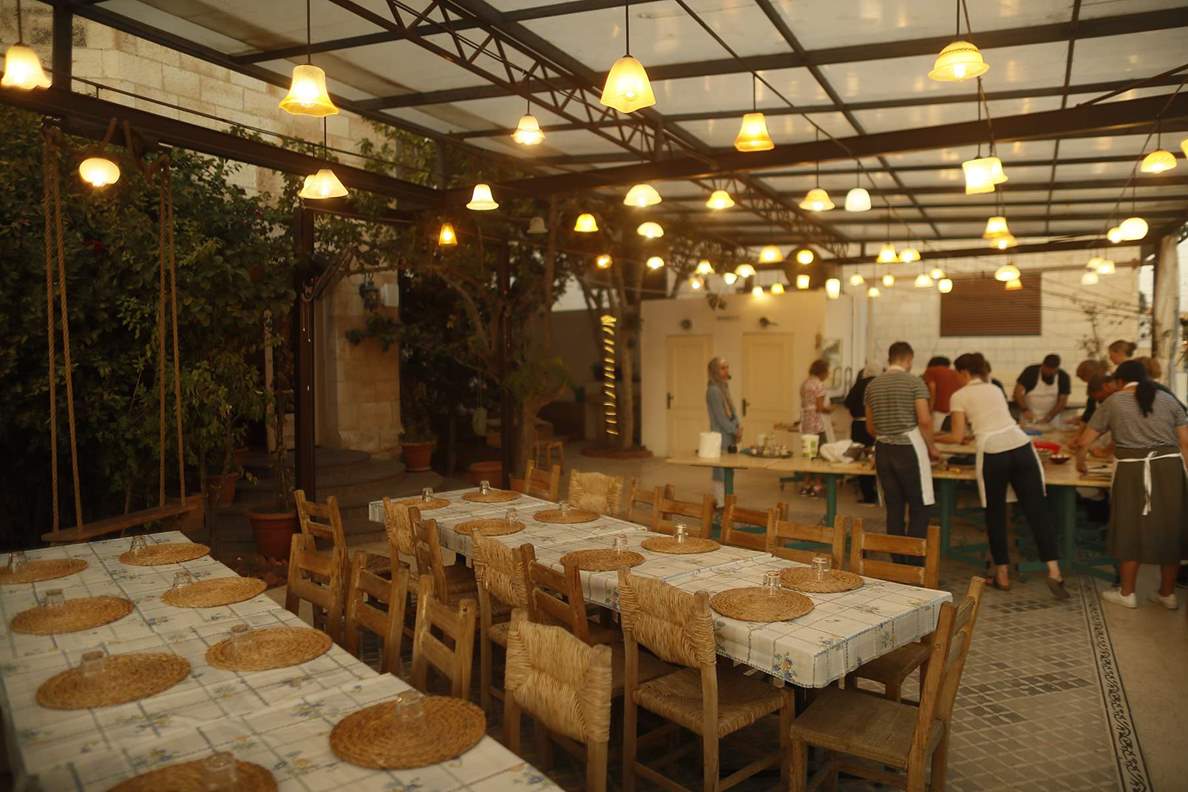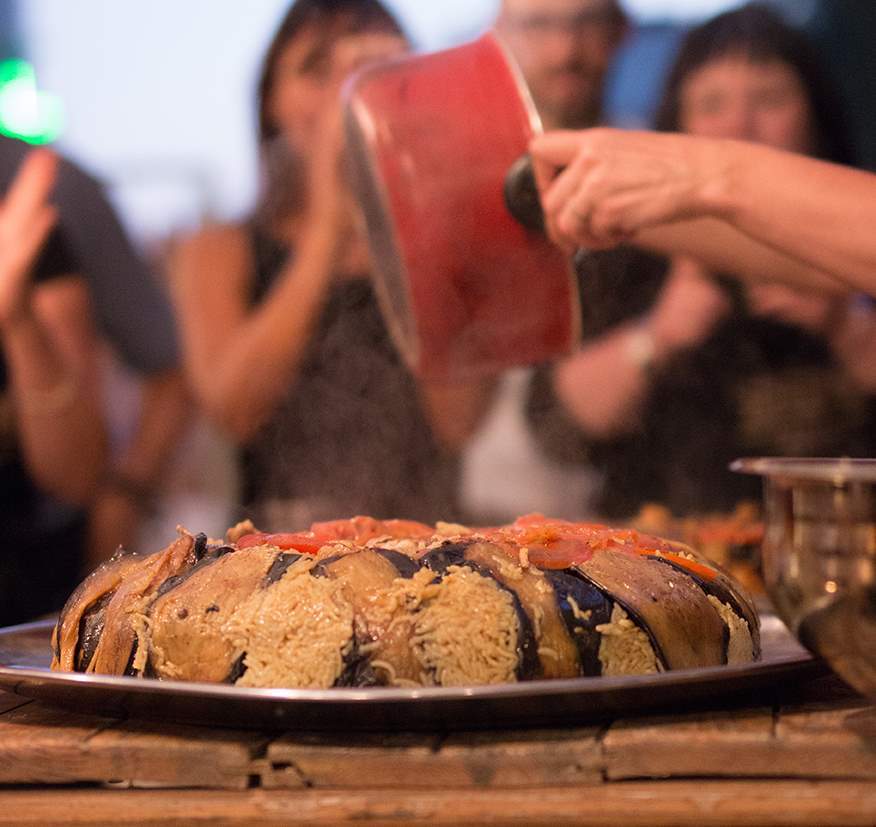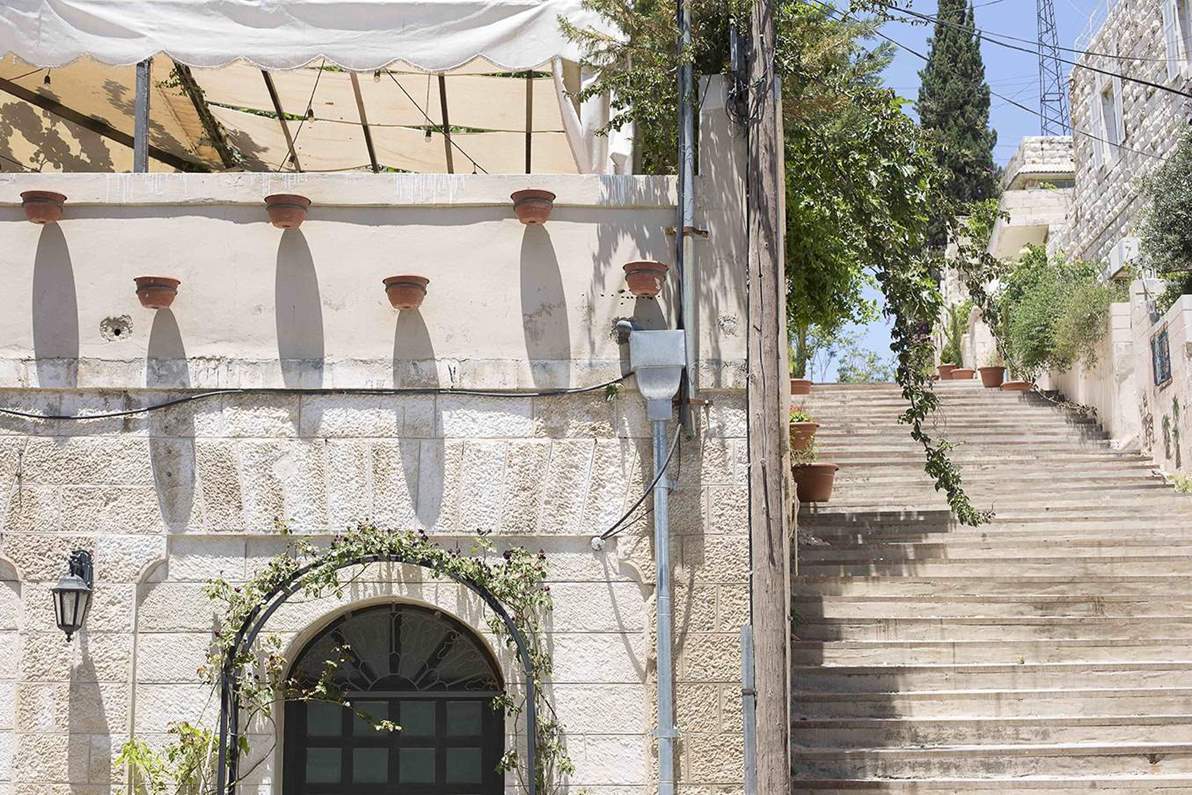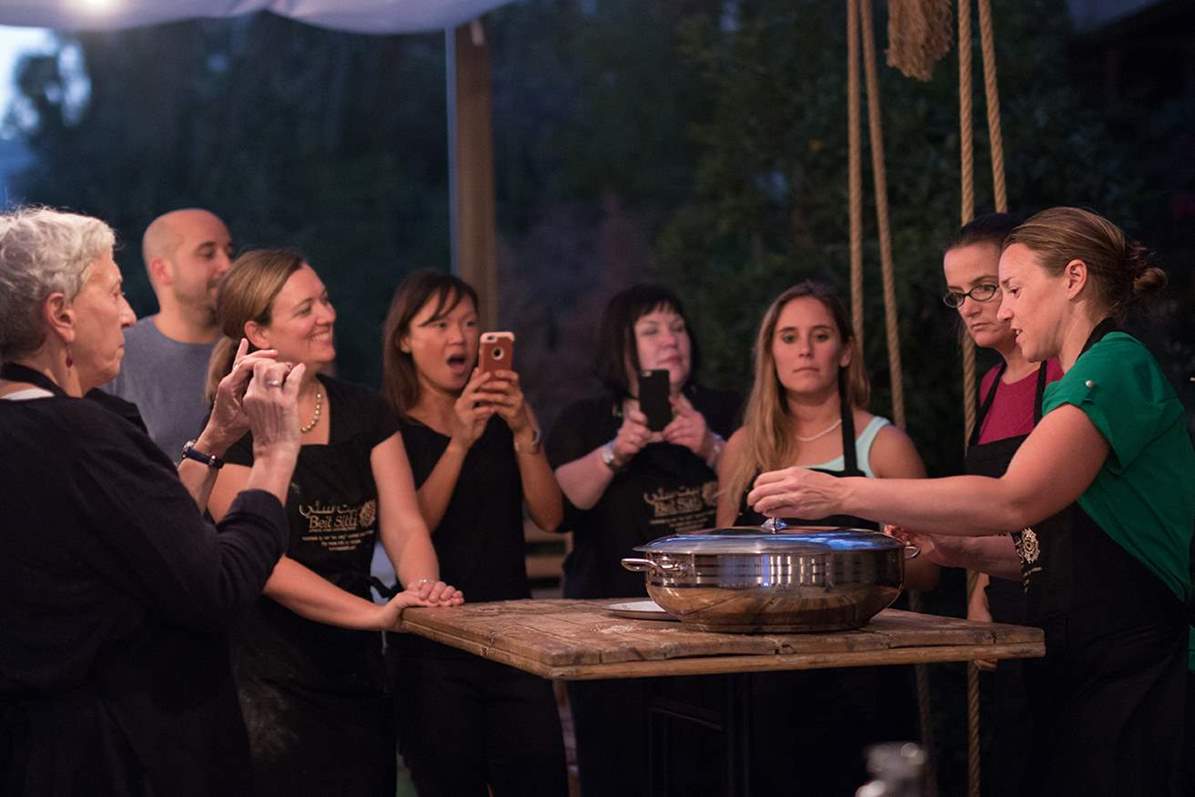AMMAN — To promote Jordan’s
culinary culture, Maria Haddad and her two sisters transformed their
grandmother’s old house in Luweibdeh, one of Amman’s oldest neighborhoods, into
a restaurant that teaches various Middle Eastern recipes in their grandmother’s
style. The
restaurant, called
Beit Sitti — Arabic for “my grandmother’s house”
— offers visitors a collaborative dining experience.
اضافة اعلان
 The interior of Beit Sitti in Luweibdeh, where guests are
invited to cook traditional Jordanian foods for themselves. (Photo: Handout
from Beit Sitti)
The interior of Beit Sitti in Luweibdeh, where guests are
invited to cook traditional Jordanian foods for themselves. (Photo: Handout
from Beit Sitti)
“The idea behind Beit Sitti is that we want to keep our
grandmother's house open and teach people the recipes that she taught us,”
Haddad said in an interview with
Jordan News.
The business, which allows guests
to cook their own
meals under professional guidance, opened in 2010. Initially,
Maria and her two sisters opened their doors to the local community. However,
with time, they started to attract tourists.
“We realized down the line that
there are many tourists who want to meet and interact with local women,” Haddad
said. “It’s a great platform for locals and foreigners to come and interact
with women from east Amman.”
Beit Sitti then became a social
business that focuses on supporting local women, she said.
 Maqluba, a traditional Jordanian dish made with chicken,
rice, eggplants, and other vegetables, is one of the most popular meals at Beit
Sitti. (Photo: Handout from Beit Sitti)
Maqluba, a traditional Jordanian dish made with chicken,
rice, eggplants, and other vegetables, is one of the most popular meals at Beit
Sitti. (Photo: Handout from Beit Sitti)
“When we first opened, our greatest
obstacle was getting people to understand what our concept was. Everyone who
called wanted to book a table and eat. To explain to them that they would have
to come in and cook — it was a bit of an issue,” said Haddad.
Three years after they opened Beit
Sitti, the three sisters launched a campaign that better explained the
restaurant’s concept.
 Maria Haddad and her sisters transformed their grandmother’s
old house in Luweibdeh into a restaurant that offers an immersive and
instructional cooking experience for guests. (Photo: Handout from Beit Sitti)
Maria Haddad and her sisters transformed their grandmother’s
old house in Luweibdeh into a restaurant that offers an immersive and
instructional cooking experience for guests. (Photo: Handout from Beit Sitti)
“In our community, people like to cook together,” Haddad
said. “It is a shared experience that has existed for years, and it provides a
communal atmosphere.”
She contended that when people
cook together, they break barriers, touching on shared interests, and
experiences.
Maqluba is Beit Sitti’s most
popular dish.
“People love it,” Haddad said. “Eggplant
and cauliflower are in most of our dishes and are always available and fresh.”
Caught up in the throes of the
COVID-19 pandemic, Beit Sitti faced major challenges in 2020, according to
Haddad.
Nonetheless, the restaurant persevered.
 Guests at Beit Sitti learn to prepare authentic Jordanian
meals. (Photo: Handout from Beit Sitti)
Guests at Beit Sitti learn to prepare authentic Jordanian
meals. (Photo: Handout from Beit Sitti)
Haddad explained that through Beit Sitti, she learned that cooking paves the
way for meeting and understanding people.
“Every single person around the world can relate to us as
Arab, as much as they can relate to themselves in their homes,” she said. “We need
to be open to people’s experiences and to learn from each other.”
Read more
Business



